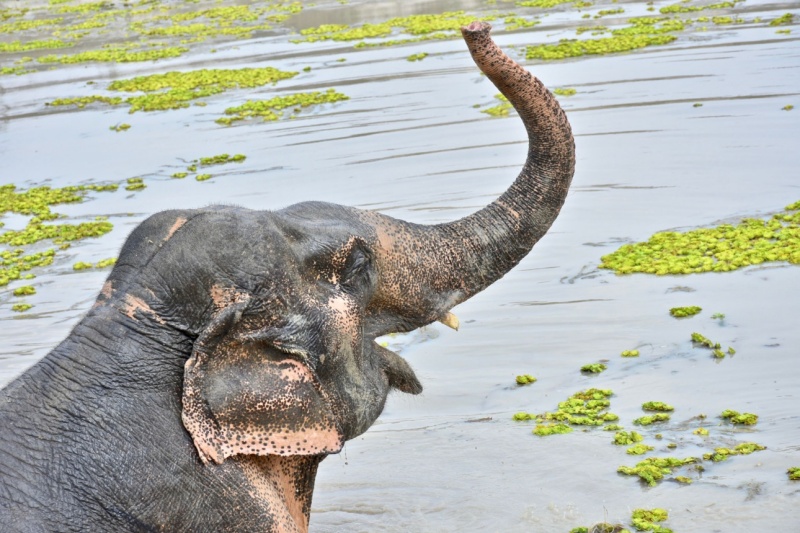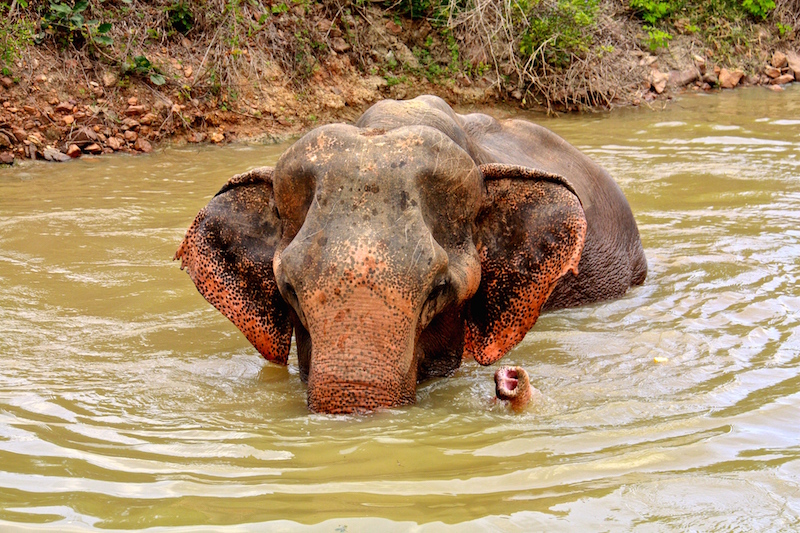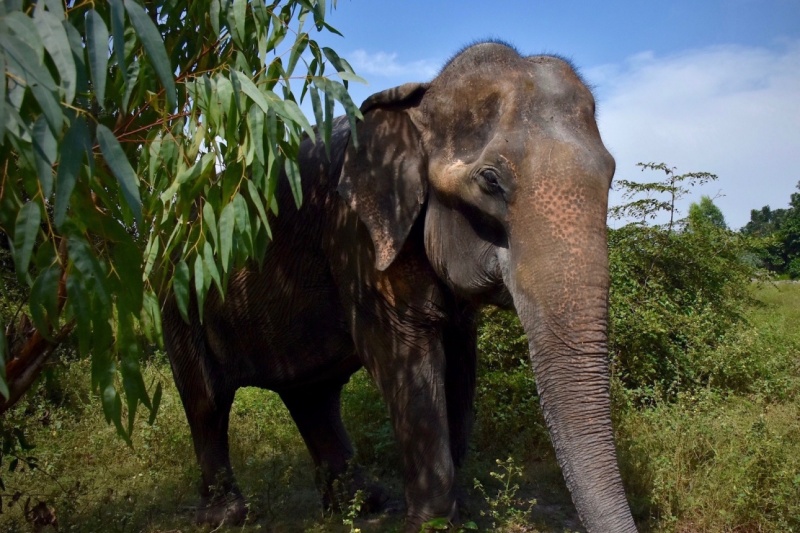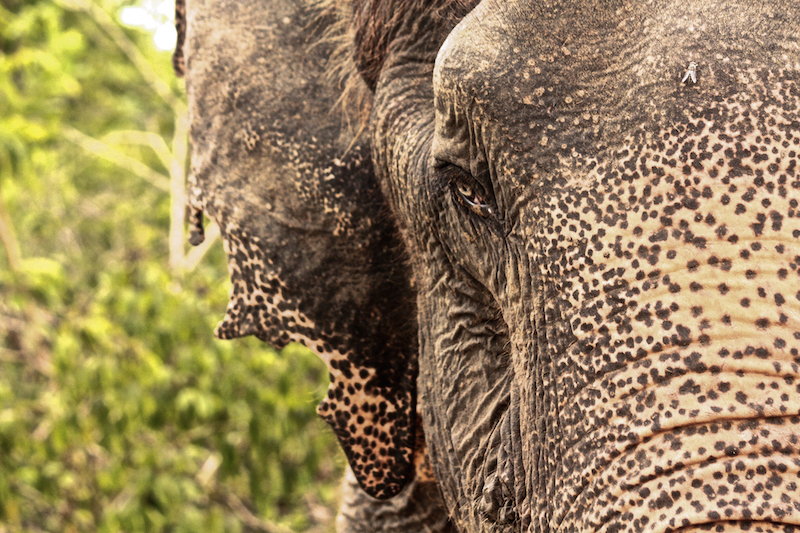About the WFFT Elephant Refuge
We run Asia’s first completely chain-free elephant sanctuary. No elephant is ever chained up, day or night.
Most of the rescued elephants at WFFT have experienced decades of abuse. The vast majority were exploited in trekking camps and/or for logging. Others were forced to perform tricks or were used for street begging. It is hard to comprehend the trauma they have experienced in their lives.
The forested land around the rescue centre gives our rescued elephants the chance to roam around in near-natural surroundings. Our large elephant enclosures, up to 18 hectares each, have natural trees, lakes and grazing areas. These give our elephants the space to move around and socialise with other elephants. At WFFT, they are given the chance to find happiness and friendship.
WFFT is completely dependent on volunteers and donations to provide our rescued elephants with the daily care they need. Please help Asian Elephants today by making a one-off or monthly donation. Every gift makes a huge difference to these gentle giants.
If you wish to volunteer ethically with elephants, then WFFT Elephant Refuge is the place to come. Read more here …
Elephants in Thailand
Thailand is home to populations of both wild and domesticated Asian elephant. The domestic population is sadly made up of animals that have been caught from the wild or bred in captivity. These animals have been trained/broken to live and work in the tourist or logging industry.
Today, Thailand’s wild population elephant population is struggling for survival. The wild elephant population of Thailand is estimated at 2,200 individuals, who live in open grasslands and dense rainforests spread over the country. Historically, domestic elephants have been used predominantly in the logging industry: ironically and unwillingly helping to destroy the very habitat they rely on to survive.
After the ban on logging in 1989, most of the logging elephants ended up being used in the tourist industry or used to make a living by begging on the streets of big cities. Walking day and night on dirty and traffic-congested streets is detrimental to the elephant’s health, and unnatural. Street begging elephants often end up being involved in road traffic accidents, with fatalities commonly occurring for both the elephant and the mahout.
Unfortunately, in Thailand, there are currently no laws to prevent this abuse and mistreatment. Therefore, there is an urgent need to help these animals.
Help to protect these magnificent animals by donating, visiting or volunteering.





